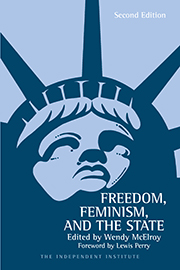Seemingly unconnected events have occurred on two of America’s oldest campuses. There has been a change of leadership at Harvard University and an allegation of rape at the College of William & Mary.
The first has received media scrutiny; the other still flies below the radar.
Both carry the same message: PC is alive and biting wherever it has been institutionalized through laws and policies.
The first event: Last Tuesday, Harvard President Lawrence H. Summers announced his resignation.
"I have reluctantly concluded that the rifts between me and segments of the Arts and Sciences faculty make it infeasible [to continue]," he said.
The rift is partly due to an informal luncheon speech Summers delivered on Jan. 13, 2005. His preamble stated that the talk was both speculative and intentionally provocative, as the event-organizer had requested. Summers then explored three possible explanations for the comparative absence of women from science and math. One of them was innate differences between genders.
Acts of murder (Andrea Yates) have received more approval from gender feminists than Summers’ few and mild words. Even Harvard’s subsequent pledge of $50 million to enhance diversity and "the way women pursuing science and engineering are treated" did not cause a sheathing of knives.
Harvard law professor Alan Dershowitz explained, "This [Summer’s resignation] is the hard left flexing their muscles and saying: We don’t like the way Larry Summers thinks, we don’t like what he says, we don’t like what he does and we’re going to get rid of him."
The second event: On Oct. 28, 2005, a rape allegedly occurred at William & Mary after a wild sorority party at Delta Delta Delta. Deepening controversy surrounds the alleged rape. On Oct. 30, a male student, who was publicly named as the accused by the university administration, was arraigned on rape charges. On Jan. 4, 2006, all charges were dropped.
The accused is currently seeking to expunge his police record. He has filed a civil suit seeking $5.55 million in damages from his accuser. His accuser has filed a Grounds of Defense with the court.
In the intervening months, a judicial hearing at William & Mary led to the male student’s expulsion. The expulsion is part of a deepening campus schism over W&M’s judicial system and how criminal accusations should be handled by the administration. The stakes are high.
If a black mark of "rapist" remains in a student’s permanent files, his academic future and career options could be devastated.
The two incidents at Harvard and W&M dramatize the power PC still exerts wherever it has managed to embed itself into the policies and mechanisms along which academia functions.
Summers was rendered ineffectual because, for decades, an intimidated academia handed gender feminists an almost blank check on policymaking. Summers’ sin was to violated the feminists’ speech code both in letter and spirit. His ousting drives home the point that no one is beyond their reach. It was in anticipation of an impending no-confidence vote from such "colleagues" that Summers resigned.
The situation at W&M is more typical of how PC functions on campus: quietly, bureaucratically and against the "little guy." The case is also significant because includes a blueprint of how to break the back of PC power. Namely, uproot the laws and policies through which it bites.
A student newspaper at W&M, The Remnant, is demanding such an uprooting. Meanwhile, W&M defend its judicial system and recommends only minor reform.
The "fixes" suggested by The Remnant are hardly minor. They include:
-- Accused students should be allowed the full use of an attorney. Currently, attorneys cannot participate in a hearing, for example, by questioning testimony or presenting the case.
--A higher standard of proof should be required, especially in criminal cases involving expulsion. Currently, a "clear and convincing" standard of evidence is used. This requires more than the "preponderance of evidence" [51 percent] used in civil courts but less than "beyond a reasonable doubt" [99 percent] employed by criminal ones.
-- Students who cannot testify because of pending criminal charges should be temporarily suspended and their hearings reasonably delayed.
(The accused’s attorney strongly advised him not to go on record with W&M before the criminal charges were resolved. Thus he was expelled without being heard.)
The Remnant is currently organizing an "initiative for change." On March 20, it will host a forum to which representatives from the Dean’s office will be invited.
The forum discussion will be heated. Remnant editor Will Coggin has a penchant for quoting the W&M’s Student Handbook which guarantees students rights. It states that they "shall enjoy all rights, privileges, and immunities guaranteed to every citizen of the United States and the Commonwealth of Virginia."
In short, the handbook guarantees the civil liberties of students. In criminal matters, these include the right to representation by an attorney, the presumption of innocence and high standards of evidence. Coggin has concluded that the guarantee "is a lie."
I hope W&M makes Coggin eat his words by rehearing the case against the accused student and by instituting the individual rights it guarantees.
If they do, I think Coggin will smile as he swallows.









